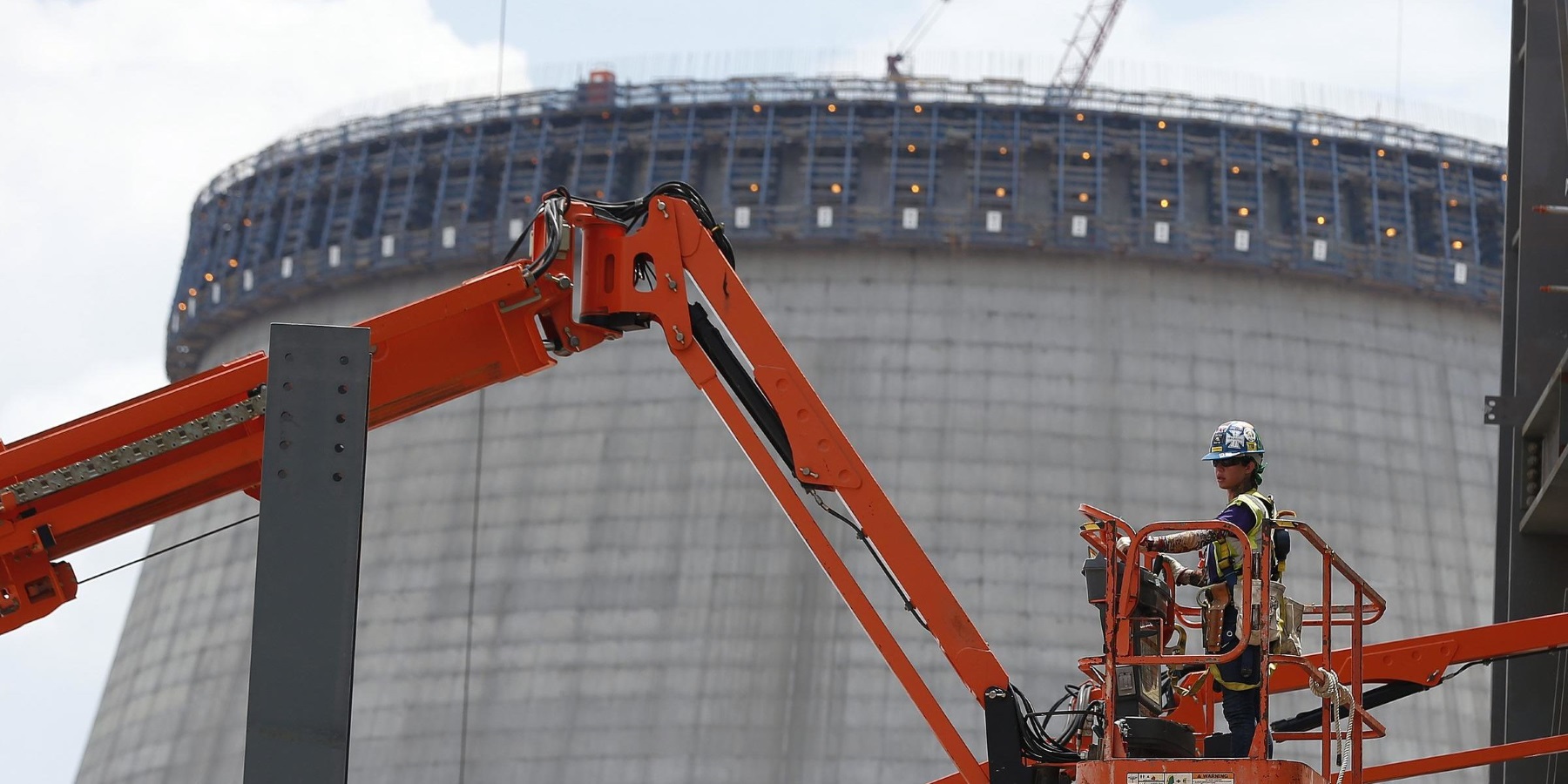Nuclear power doesn’t have much of a future in the U.S., according to a recent paper that says the country is unlikely to see many new reactors in coming decades, unless there are major policy changes.
That means the only nuclear reactors under construction in the country right now, which are here in Georgia, could be the last ones built in the U.S. for years.
A fifth of the nation’s electricity comes from nuclear power, but the number of plants is shrinking. Some have already closed, and others are scheduled to. Low natural gas prices have made building new nuclear reactors less competitive, and renewable energy is getting more competitive.
The troubled outlook for nuclear is bad news to Granger Morgan, a professor in the department of engineering and public policy at Carnegie Mellon University in Pittsburgh, because he said once nuclear plants are up and running they don’t release carbon dioxide.
“One of the things, of course, that are really important in the context of climate change is figuring out how to decarbonize the energy system,” he said, “that is how to produce electricity and the other things we need without producing a lot of carbon dioxide into the atmosphere.”
In a paper he recently co-wrote for the journal Proceedings of the National Academy of Sciences, he doesn’t find much promise for the U.S. nuclear industry.
“Reluctantly, we’ve reached the conclusion that for at least the next few decades, which is the critical period for avoiding serious climate change, nuclear power is probably not going to make much of a new contribution,” he said.
That’s because, beyond the existing fleet aging, there’s not much new coming down the line. Morgan said he found that the technology for the next generation of big reactors is lagging, and there’s little market for smaller reactors.
Marilyn Brown, who runs the climate and energy policy lab at Georgia Tech, agrees with Morgan that nuclear power is important for addressing climate change, and she said the paper, which she was not involved with, is a fair assessment of the challenges for nuclear.
But, she said, her outlook for the future isn’t quite as grim as Morgan’s. She said she would like to see the U.S. build a few more nuclear reactors, but she also believes that renewable sources of energy and battery technology will keep improving.
“I think we can manage no new nuclear. I just don’t want to see a bunch of good plants retired,” Brown said
The findings in the paper weren’t a surprise to Sara Barczak, regional advocacy director with the Southern Alliance for Clean Energy, a group that has been critical of the nuclear expansion at Plant Vogtle in Georgia.
She said years ago, there were more than 15 new reactors planned in the Southeast, but now there are only the two at Vogtle going forward. A similar project in South Carolina was canceled last year.
“The authors took a hard look at the realities … coming to the conclusion that it’s extremely costly, it takes quite a long time for these things to come online if they do, ever,” she said.
And the idea that nuclear power faces an uncertain future isn’t bad news to everyone.
“Nuclear energy is too expensive and too dangerous, and uses a ton of water,” said Colleen Kiernan, executive director of the group Georgia Conservation Voters.
Instead, she supports investing more in energy efficiency, renewable power and battery storage.
The two nuclear reactors under construction at Plant Vogtle, near Augusta, are years behind schedule and billions of dollars over budget. Last year, when the future of that project was up in the air, there were questions of whether it was really needed in Georgia.
Still, Brown said she’s glad that Georgia Power is sticking with the project.
And Morgan, who believes nuclear is vital for cutting emissions in the U.S., said without more nuclear power, “I think we’re toast. Actually, we’re probably burnt toast.”








